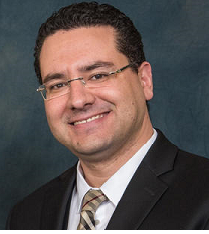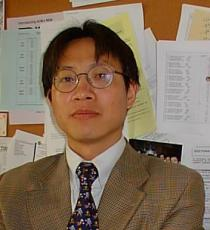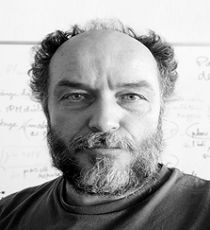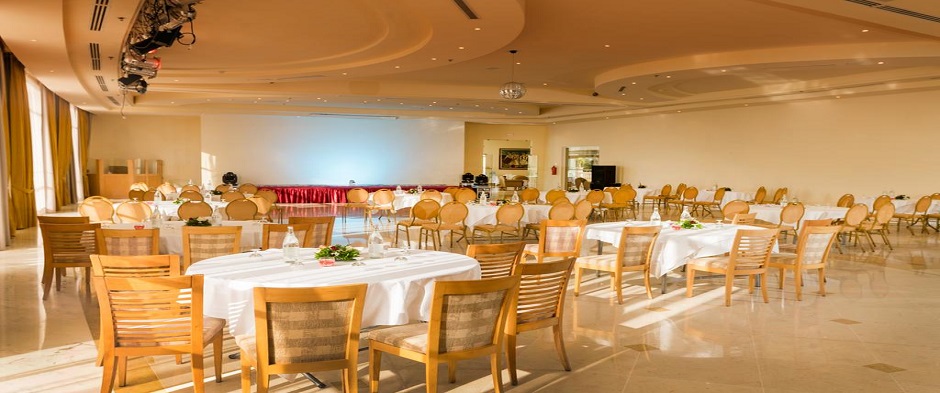AICO'2018
1ére Conférence internationale sur
l'Intelligence Artificielle et ses applications :
E-learning et éducatif Numérique
Du 01 au 03 Décembre à Hammamet -Tunisie
Conférenciers

Speaker 1 : Pr. Marouane Kssentini
Talk : Improving Software Health with Artificial Intelligence: From Foundational Research to Educational Impact and Societal Benefits
Dr. Kessentini is a tenured Associate Professor in Computer Science at the University of Michigan, USA. He is the founder of the Intelligent Software Engineering (ISE Lab) research lab. Prior to joining Michigan in 2013, He received his Ph.D. from the University of Montreal in Canada in 2012. He is a recent recipient of all the three university distinguished awards in teaching, digital education, and research; and also the 2018 President of Tunisia Distinguished Research Award. The University of Michigan Technology Transfer Office recently featured his intelligent software refactoring as one of the top 8 inventions of the University in 2018 among over 500 inventions. He received multi-million grants from both industry and federal agencies and published over 120 papers, including 4 best paper awards, in top software engineering, services computing, and computational intelligence journals and conferences. Dr. Kessentini has several collaborations with various industrial companies on the design and adoption computational search, data analytics machine learning, and evolutionary algorithms to address several software engineering and services computing problems such as software quality, software migration, software evolution, performance prediction, services quality, services composition, services refactoring, etc. Several of his prototypes on intelligent refactoring are licensed to several big software companies thus impacting millions of users. He is the co-founder of the International Workshop on Refactoring (IWoR) and recognized by many recent research surveys, published in top journals (JSS, IST, etc.), as a leading researcher in the areas of software engineering, computational intelligence for software engineering, code smells detection and correction, and software refactoring. He was also the co-chair of the SBSE track at the GECCO2014 and GECCO2015 conferences and he was the general chair of the 8th Search Based Software Engineering Symposium (SSBSE2016). He is the founder of the North American Symposium on Search Based Software Engineering and served as a distinguished speaker at the 2016 IEEE World Congress on Computational Intelligence (Vancouver, Canada) and SSBSE2018. He will be the PC chair of MODELS2019 and general chair of ASE2021. He is associate editor in 7 journals and served as PC member of over 100 international conferences in software engineering and computational intelligence.

Speaker 2 : Pr. Liming Chen
Talk : Generative Adversarial Networks (GANs) et Applications
Liming Chen est professeur au département de mathématiques et d'informatique. Il est titulaire d'un BSc en mathématiques et informatique de l'Université de Nantes en 1984, d'un MSc et d'un doctorat en informatique de l'Université Pierre et Marie Curie Paris 6 en 1986 et 1989 respectivement. Il a été maître de conférences à l'Université de Technologie de Compiègne avant de rejoindre l'École Centrale de Lyon en tant que Professeur en 1998. Il a été l'un des fondateurs et directeur scientifique de la société parisienne Avivias de 2001 à 2003 et l'expert scientifique multimédia à France Telecom R&D China en 2005. Il a dirigé le département de mathématiques et d'informatique de 2007 à 2016. Ses intérêts de recherche actuels comprennent la vision par ordinateur, l'apprentissage automatique, l'analyse et la catégorisation d'images et de vidéos, l'analyse et la reconnaissance des visages et l'informatique affective.

Speaker 3 : Pr. Pierre-André Caron
Talk : Analyse quantitative des traces d'activités dans un dispositif de formation en e-Learning
Pierre-André Caron est Maître de Conférences en Sciences de l'Education à l'Université de Lille depuis 2008. Docteur en informatique, il est fait partie du pôle de recherche "Apprentissage, Dispositif, Alternance et Numérique" (ADAN) au sein de l'équipe Trigone du CIREL. Il participe au comités de rédaction des revues STICEF et TransFormations. Ces travaux portent sur le dispositif de formation instrumenté. Cet objet est appréhendé et son cadre théorique est construit, au travers les frontières qu'il partage avec différents concepts : les intentions des enseignants, les environnements informatiques pour l'apprentissage humain, la situation pédagogique/d'apprentissage instrumentée et les dispositions des apprenants. L'étude des propriétés de structuration et de cristallisation des pratiques associées au dispositif instrumenté de formation offre alors pour celles-ci un cadre à la fois descriptif et prescriptif.
*La langue officielle de la conférence est le français, mais l’utilisation de l’anglais est autorisée pour les auteurs non-francophones


